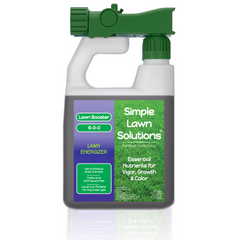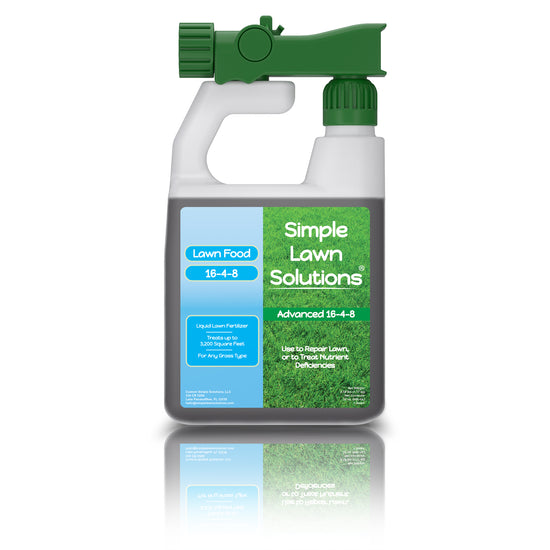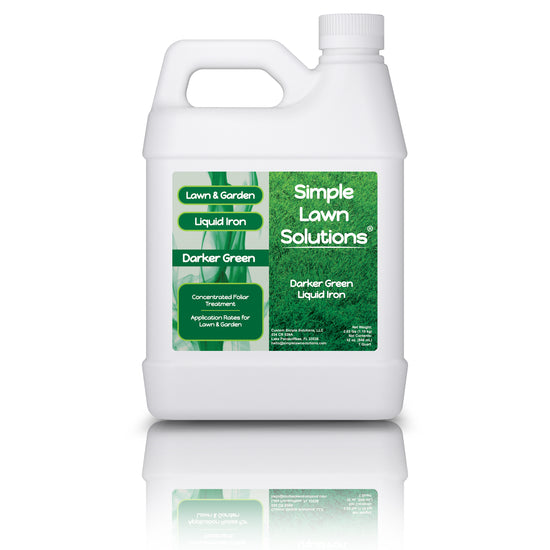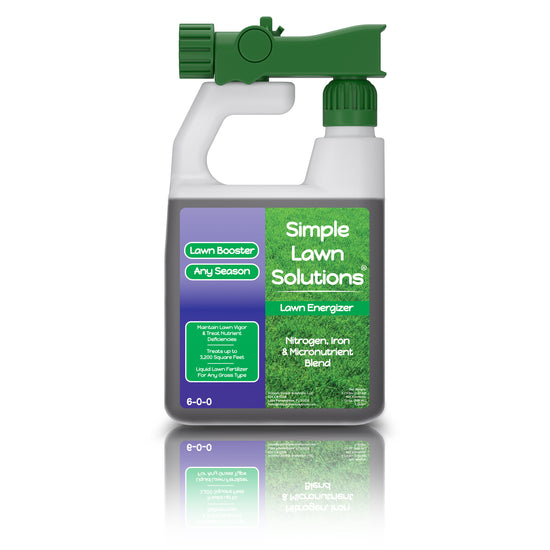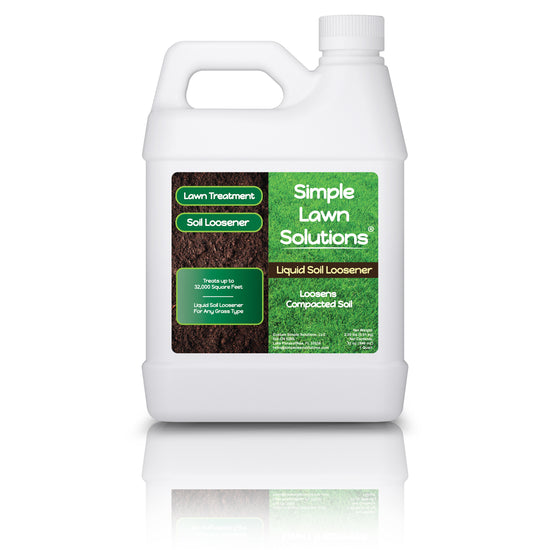Lawn fertilizers aid in the aesthetic of residential and commercial lawns and restore nutrient balance within the soil. If you’ve ever wondered how the natural process of nutrient absorption from these fertilizers occurs, read along as we take a deeper dive into understanding water-soluble fertilizers and their essential role in lawn care.
In this guide, we'll discuss water-soluble fertilizers' role, the benefits of liquid fertilizers, how to make fertilization more effective, and how frequently you should be fertilizing your lawn.
What Does it Mean to be Water Soluble?
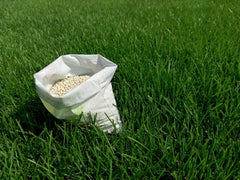 Before diving into the benefits of water-soluble fertilizers, it's first essential to understand what it means. Any ingredient or product that is water-soluble means that it can dissolve in and be absorbed by water. Water solubility measures how much of a given ingredient can be effectively dissolved and absorbed.
Before diving into the benefits of water-soluble fertilizers, it's first essential to understand what it means. Any ingredient or product that is water-soluble means that it can dissolve in and be absorbed by water. Water solubility measures how much of a given ingredient can be effectively dissolved and absorbed.
The excellent news for lawn fertilizers is that both granular and liquid fertilizers are water-soluble, though they may require different steps before or after lawn application. Finding the right water-soluble fertilizer for your lawn can bring you quick results with almost no fuss, depending on your grass care needs.
The Benefits of Water Soluble Fertilizers
Lawn fertilizers are meant to be water-soluble so that the soil can adequately absorb them. When you're fertilizing your lawn, water solubility is crucial in whether your lawn care application is effective or not. The solubility of lawn fertilizers, granular or liquid, provides the grass with these benefits:
- Efficient absorption
- Optimal growth
- Effective use of nutrients
- Less product waste
We can revitalize and rejuvenate lawns through an independent fertilization process because of the water-soluble properties of lawn fertilizers. Without this property, lawn fertilizers would sit at the surface of grass, rendering them ineffective without proper soil absorption and nutrient uptake.
What is Liquid Fertilizer?
Liquid fertilizers exist in a readily available form for fast nutrient absorption by the soil. Because of this fertilizer's liquid state, it has enhanced water solubility upon application. You can rest assured that the ingredients are getting to work fast. Liquid fertilizer allows for a more uniform application than granular fertilizer. Best of all, there is no heavy spreading equipment needed with liquid fertilizers—use your existing garden hose to apply this product with the bottle's spray nozzle.

There are even more benefits to going liquid with your lawn care. Liquid fertilizers are homogenous and well-mixed, so your lawn will get an even application; you will see consistent results in your yard. The water solubility in liquid fertilizer is even better due to the small particle sizes that allow for significant nutrient uptake by grassroots.
You can use your liquid fertilizer for more than just your grass. These water-soluble fertilizers can be sprayed onto plant foliage for an extra nutrient boost, too.
How Do I Ensure Effective Water Solubility?

The physical application of lawn fertilization is not adequate alone. The water solubility of necessary macronutrients and micronutrients makes lawn fertilization useful. No matter which type of fertilizer you choose for your lawn care, these are steps you can take to ensure the effectiveness of your water-soluble fertilizers:
- Research lawn fertilizers - Look for specific callouts on water solubility.
- Compare fertilizer ingredients - note which micronutrients may be insoluble.
- Follow fertilizer directions for pre and post-application - pay special attention to watering instructions as these will directly impact the water solubility of ingredients.
Researching ingredients in fertilizers will be the first step to ensuring sufficient water solubility. With these tips, you can get the most out of your water-soluble fertilizer. You might be asking yourself how often you should be applying this to your lawn - let’s learn more.
When Should I Fertilize My Lawn?
Navigating a lawn care schedule, especially a fertilizing schedule, can sometimes prove to be challenging. The factors contributing to lawn fertilization frequency may include grass type, season, and overall grass health. Your warm-season or cool-season grass may have different fertilization needs. Still, the general rule of thumb is to fertilize twice a year - once at the start of the growing season and again before the dormancy season (or the first frost if you are in a colder state.)
 You do not need to adhere to fertilizing just twice a year rigidly. Instead, pay attention to what your lawn is telling you. Brown or yellowing leaves, dry patches, and an excess of weeds can tell you what you need to know about the state of your grass's health. The most conclusive way to tell if it's time for fertilization is to conduct a soil test. The results of the soil test will let you know of any nutrient deficiencies or pH imbalances. From there, you can decide the best course of action for your grass health. Regardless of which type of product you use, highly water-soluble fertilizers will yield faster, more effective results.
You do not need to adhere to fertilizing just twice a year rigidly. Instead, pay attention to what your lawn is telling you. Brown or yellowing leaves, dry patches, and an excess of weeds can tell you what you need to know about the state of your grass's health. The most conclusive way to tell if it's time for fertilization is to conduct a soil test. The results of the soil test will let you know of any nutrient deficiencies or pH imbalances. From there, you can decide the best course of action for your grass health. Regardless of which type of product you use, highly water-soluble fertilizers will yield faster, more effective results.
If you need help getting started, this fertilizer schedule supplies a month-by-month lawn care guide for your specific needs.
How to Make the Most Out of Your Fertilizer Application
Fertilizer application generally only happens a few times per year, whether you choose a granular fertilizer or opt for liquid fertilizer. Therefore, you want to be sure your fertilizer application is practical and useful. Here are some tips on how to make the most out of your lawn fertilizer:
- Prepare soil - Aerate to allow for deeper penetration of nutrients and water.
- Indicate the nutrient imbalance - Conducting a soil test will help you learn more about what nutrients your soil is lacking
- Find the right blend - Depending on your soil test results, you can restore nutrient balance in your soil by applying the right blend and ratio of essential fertilizer macronutrients: nitrogen, potassium, and phosphorus.
Your lawn is sure to enhance curb appeal in no time!



